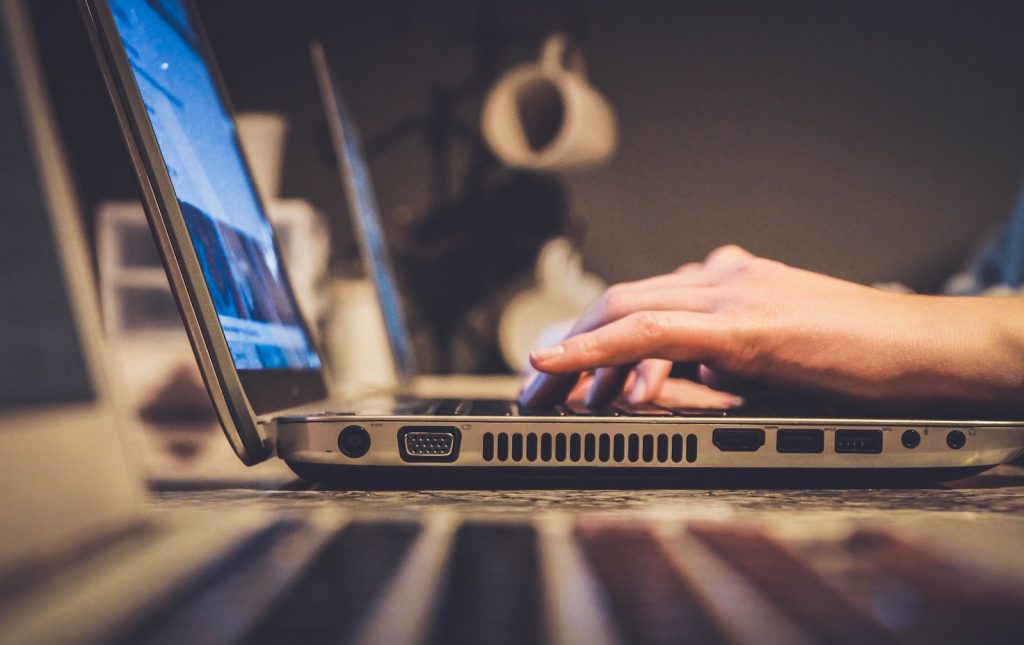Having a dedicated study space and routine is crucial for academic success. It provides a structured environment that promotes focus, productivity, and organization. In this article, we will explore various strategies to set up a dedicated study space, eliminate distractions, create a comfortable and ergonomic study area, develop a study schedule and routine, prioritize study tasks and goals, use effective time management techniques, stay focused and motivated during study sessions, incorporate active learning strategies, make the most of breaks and downtime, seek support and accountability, and ultimately develop effective study habits.
Key Takeaways
- Set up a dedicated study space to create a focused environment.
- Eliminate distractions in your home environment to increase productivity.
- Create a comfortable and ergonomic study area to prevent physical discomfort.
- Develop a study schedule and routine to establish a consistent habit.
- Prioritize your study tasks and goals to stay on track and avoid overwhelm.
Setting Up a Dedicated Study Space
Choosing a quiet and well-lit area is essential for creating an optimal study environment. Look for a space in your home that is away from high-traffic areas and where you can minimize interruptions. Additionally, ensure that the area has adequate lighting to prevent eye strain and promote alertness.
Organizing study materials and supplies is another important aspect of setting up a dedicated study space. Keep your textbooks, notebooks, pens, and other materials within reach to avoid wasting time searching for them. Consider using shelves or storage containers to keep everything organized and easily accessible.
Personalizing the space can also increase motivation and make studying more enjoyable. Add some personal touches such as photos, motivational quotes, or artwork that inspire you. Make the space your own so that you feel comfortable and motivated to spend time there.
Eliminating Distractions in Your Home Environment
Identifying potential distractions is the first step in eliminating them from your study environment. Common distractions include noise from family members or roommates, electronic devices such as smartphones or televisions, and clutter in the surrounding area. Take note of what distracts you the most so that you can implement strategies to minimize their impact.
Implementing strategies to minimize distractions is crucial for maintaining focus during study sessions. Consider using noise-cancelling headphones or playing instrumental music to block out background noise. Put your phone on silent or in another room to avoid the temptation of checking it. Clear your study area of any unnecessary items or clutter that may divert your attention.
Communicating with family members or roommates about study time is also important. Let them know when you will be studying and ask for their cooperation in minimizing distractions. Establish boundaries and create a mutual understanding that your study time is important and should be respected.
Creating a Comfortable and Ergonomic Study Area
| Metrics | Description |
|---|---|
| Desk Height | The height of the desk should be adjustable to ensure proper posture and comfort. |
| Chair Height | The height of the chair should be adjustable to ensure proper posture and comfort. |
| Lighting | The study area should have adequate lighting to reduce eye strain and fatigue. |
| Noise Level | The study area should be quiet or have minimal noise to reduce distractions and increase focus. |
| Temperature | The study area should be at a comfortable temperature to reduce discomfort and increase focus. |
| Organization | The study area should be organized to reduce clutter and increase productivity. |
| Equipment | The study area should have the necessary equipment, such as a computer and printer, to complete tasks efficiently. |
Choosing a comfortable chair and desk is essential for maintaining good posture and preventing discomfort or injury during long study sessions. Look for a chair that provides proper support for your back and a desk that is at the appropriate height for your comfort. Consider investing in an ergonomic chair or desk if possible.
Adjusting the lighting and temperature in your study area can also contribute to your comfort and focus. Ensure that the lighting is not too harsh or dim, as this can strain your eyes or make you feel drowsy. Adjust the temperature to a level that is comfortable for you, as extreme temperatures can be distracting.
Incorporating ergonomic accessories such as a wrist rest, footrest, or monitor stand can further enhance your comfort and prevent strain or injury. These accessories help to maintain proper alignment and reduce the risk of repetitive stress injuries.
Developing a Study Schedule and Routine
Setting realistic study goals is crucial for effective time management and productivity. Break down larger goals into smaller, manageable tasks that can be accomplished within a specific timeframe. This will help you stay focused and motivated as you work towards achieving your goals.
Creating a schedule that fits your lifestyle is important for establishing a routine and ensuring that you allocate enough time for studying. Consider your other commitments such as work, family, or extracurricular activities, and plan your study sessions accordingly. Be realistic about how much time you can dedicate to studying each day and create a schedule that reflects this.
Incorporating breaks and downtime into your routine is essential for maintaining focus and preventing burnout. Schedule short breaks every hour or two to recharge and give your brain a rest. Use this time to stretch, grab a snack, or engage in a quick relaxation exercise. Additionally, make sure to allocate time for leisure activities or hobbies that help you relax and unwind.
Prioritizing Your Study Tasks and Goals

Identifying the most important tasks is crucial for effective time management and productivity. Prioritize your study tasks based on urgency and importance. Focus on completing the tasks that have the highest impact on your learning or that are due soonest.
Breaking down larger goals into smaller, manageable tasks is another effective strategy for staying organized and motivated. This allows you to tackle one task at a time and gives you a sense of accomplishment as you complete each task. Use a planner or to-do list to keep track of your tasks and ensure that nothing falls through the cracks.
Using a planner or to-do list is an effective way to stay organized and ensure that you are making progress towards your goals. Write down all of your tasks and deadlines, and check them off as you complete them. This will help you stay focused, motivated, and accountable.
Using Effective Time Management Techniques
Prioritizing tasks based on urgency and importance is an effective time management technique. Determine which tasks are time-sensitive or have the highest impact on your learning, and tackle those first. This will help you make the most of your study time and ensure that you are focusing on what matters most.
Using the Pomodoro technique or other time management strategies can also enhance your productivity. The Pomodoro technique involves working in focused intervals of 25 minutes, followed by a short break of 5 minutes. After completing four cycles, take a longer break of 15-30 minutes. This technique helps to maintain focus and prevent burnout.
Avoiding procrastination and staying on track is crucial for effective time management. Break tasks into smaller, manageable chunks and set specific deadlines for each. Hold yourself accountable and avoid the temptation to put off tasks until the last minute. Remember that consistency and discipline are key to developing effective study habits.
Staying Focused and Motivated During Study Sessions
Using positive self-talk and visualization techniques can help you stay focused and motivated during study sessions. Remind yourself of your goals, strengths, and capabilities. Visualize yourself successfully completing your tasks and achieving your desired outcomes. This positive mindset will help you stay motivated and overcome any challenges or setbacks.
Incorporating mindfulness or meditation practices into your study routine can also enhance focus and concentration. Take a few minutes before each study session to practice deep breathing or mindfulness exercises. This will help calm your mind, reduce stress, and improve your ability to concentrate.
Finding ways to make studying more enjoyable or rewarding can also increase motivation. Consider incorporating rewards or incentives for completing tasks or reaching milestones. For example, treat yourself to a favorite snack or take a short break to engage in an enjoyable activity after completing a challenging task. This will help make studying feel less like a chore and more like a rewarding experience.
Incorporating Active Learning Strategies
Using flashcards, quizzes, or other interactive tools is an effective way to engage in active learning. These tools help you actively recall information, test your knowledge, and reinforce key concepts. Incorporate these activities into your study routine to enhance retention and understanding.
Engaging in group study sessions or discussions can also promote active learning. Collaborating with peers allows you to share ideas, ask questions, and gain different perspectives on the material. This interactive approach can deepen your understanding of the subject matter and improve your critical thinking skills.
Applying what you’ve learned through practice or real-life scenarios is another effective active learning strategy. Look for opportunities to apply your knowledge in practical ways, such as through simulations, case studies, or real-world examples. This will help you solidify your understanding and make the information more meaningful and relevant.
Making the Most of Your Breaks and Downtime
Taking breaks to recharge and avoid burnout is crucial for maintaining productivity and focus. Use your breaks to engage in activities that help you relax and recharge. This could include going for a walk, practicing a hobby, or simply taking a few minutes to do something you enjoy. Use this time to clear your mind and come back to your study session feeling refreshed.
Engaging in hobbies or activities that promote relaxation and stress relief is important for overall well-being. Find activities that help you unwind and reduce stress, such as reading, listening to music, or practicing yoga. Incorporate these activities into your daily routine to promote balance and prevent burnout.
Using downtime to review notes or study materials is an effective way to make the most of your free time. Instead of mindlessly scrolling through social media or watching television, take a few minutes to review key concepts or quiz yourself on important information. This will help reinforce your learning and make your study sessions more efficient.
Seeking Support and Accountability for Your Study Habits
Finding a study buddy or accountability partner can greatly enhance your study habits. Look for someone who shares similar goals and values, and who is committed to their own academic success. Schedule regular study sessions together, where you can support and motivate each other.
Joining a study group or online community is another effective way to seek support and accountability. These groups provide a platform for sharing ideas, asking questions, and receiving feedback from peers. They can also serve as a source of motivation and encouragement during challenging times.
Seeking help from a tutor or mentor can provide additional support and guidance in developing effective study habits. Tutors can provide personalized instruction and help you overcome specific challenges or areas of weakness. Mentors can offer advice, share their own experiences, and provide valuable insights into effective study strategies.
In conclusion, having a dedicated study space and routine is crucial for academic success. By setting up a dedicated study space, eliminating distractions, creating a comfortable and ergonomic study area, developing a study schedule and routine, prioritizing study tasks and goals, using effective time management techniques, staying focused and motivated during study sessions, incorporating active learning strategies, making the most of breaks and downtime, and seeking support and accountability, you can develop effective study habits that will enhance your learning and academic performance. Remember to be patient and persistent in implementing these strategies, as developing effective study habits takes time and effort.
If you’re looking to create a productive study environment at home, it’s important to consider various factors that can impact your focus and concentration. One such factor is the choice between on-campus and off-campus living. Understanding the pros and cons of each option can help you make an informed decision that aligns with your study goals. To learn more about this topic, check out this insightful article on on-campus vs off-campus living. It provides valuable insights into the different living arrangements and how they can affect your study routine.
FAQs
What is a productive study environment?
A productive study environment is a space that is conducive to learning and studying. It is a place where distractions are minimized, and the focus is on studying and retaining information.
Why is it important to have a productive study environment?
Having a productive study environment can help you concentrate better, retain information more effectively, and ultimately improve your academic performance. It can also help you develop good study habits and increase your motivation to study.
What are some tips for creating a productive study environment at home?
Some tips for creating a productive study environment at home include finding a quiet and comfortable space to study, minimizing distractions such as noise and clutter, setting up a study schedule, and using tools such as a planner or study app to stay organized.
What are some common distractions that can hinder productivity while studying at home?
Common distractions that can hinder productivity while studying at home include social media, television, video games, household chores, and family members or roommates.
How can I minimize distractions while studying at home?
To minimize distractions while studying at home, you can try turning off your phone or putting it on silent, using noise-cancelling headphones, setting up a designated study space away from high-traffic areas, and communicating with family members or roommates about your study schedule and need for quiet time.
What are some other ways to increase productivity while studying at home?
Other ways to increase productivity while studying at home include taking breaks to avoid burnout, staying hydrated and nourished, using study aids such as flashcards or study groups, and setting achievable goals for each study session.




